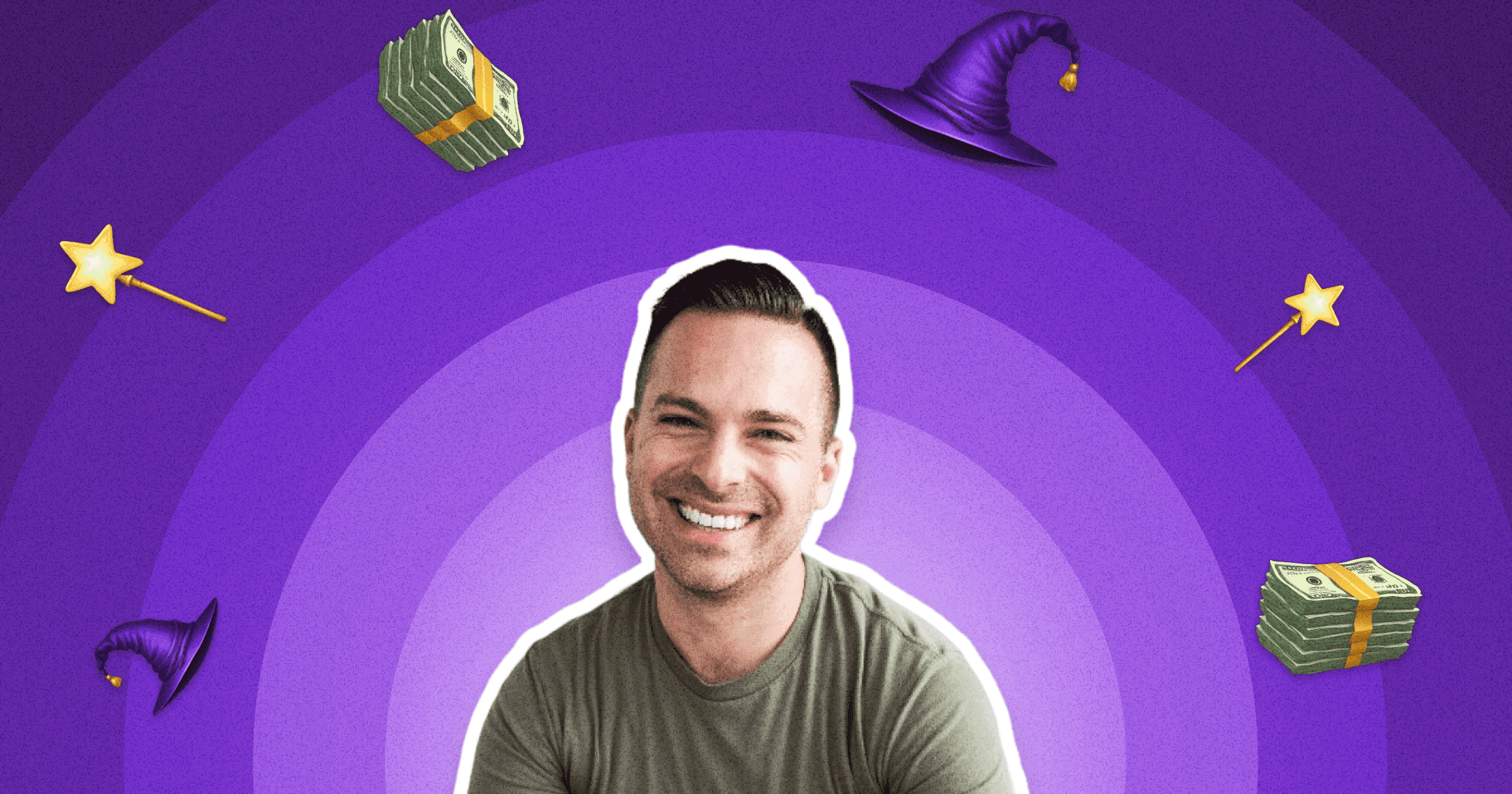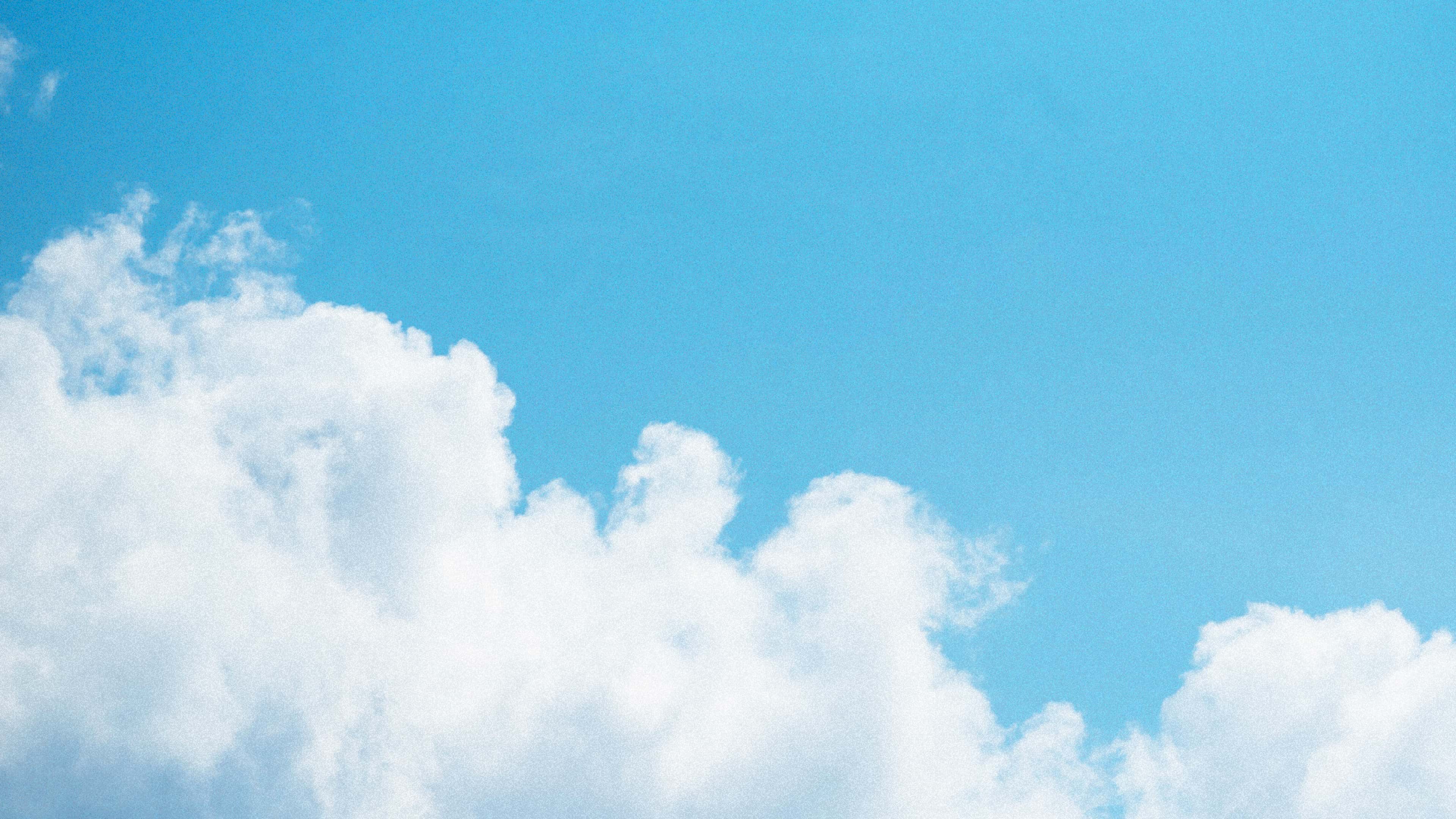October 15, 2023
An Interview with Justin Moore: the Sponsorship Whisperer

Louise
This week, we dove into the world of creator sponsorships with Justin Moore, founder of Creator Wizard. A YouTube-born creator of 15 years, Justin now helps creators negotiate the best sponsorship deals.
His goal is to help creators big and small land 1,000,000 paid sponsorships by 2032. Today, he's well underway with 30,000 creators in his community. We talked about Justin’s own growth as a creator, lessons from failed journeys, and ways for creators to use video and more.
🤚 The interview transcript has been edited and shortened for clarity.
Table of Contents
Justin Moore, a sponsorship coach
The problem with sponsorship deals
Using videos as a creator
Marketing to creators
Advice to first-time creators
Working with brands
The future of the creator economy

Louise: You are what we now call a sponsorship coach. Ten or even five years ago your job didn’t exist yet. Tell me more about what you do.
Most people still don't understand what a sponsorship coach is. People think that I will get them partnerships for a percentage. This is the biggest misconception.
For most creators, partnerships start organically. A brand will knock on the door. More often than not, they will offer a creator free products in return for posting. Surprisingly, most people are stoked with this at first.
Soon, creators realize they’re getting the short end of the stick. That they should probably be compensated. Creators wake up one day and realize they bring a lot to the table. They know they have a valuable audience that the brand wants to target.
As a sponsorship coach, I teach people how to advocate for themselves, how to negotiate, how to price their deals, and how to scope their worth and their value. Depending on what the brand is asking for.
The big difference is that I do not take a percentage of sponsorship deals. Most of my content is free. Besides my courses, I publish tons of stuff for free. My mission is to educate the next generation of creators, not take a percentage of their deals.
I've flipped this model on its head and it's been a fun ride.
Louise: How did you first identify the problem of sponsorship deals?
My wife and I have been creators for almost 15 years. When we started, we didn't have mentors in the industry. It was so much like the Wild West in the early days. We made every mistake in the book.
I also worked for an agency for seven years, bringing brand partnerships to creators. I had tons of interactions with creators. I was shocked at their lack of professionalism and communication among creators. Then I realized many of the creators had never had a ‘real’ job. Yet, there’s a level of professionalism you need when negotiating with brands.
At the time there wasn't any formal education to learn to advocate for yourself as a creator. All of this made for the perfect storm. That's when I decided to start educating the next generation of creators.
Louise: You aren’t just a creator yourself but work closely with creators as part of your product. Tell us about your journey as a creator to where you are today educating fellow creators.
In 2009, my wife and I were on YouTube. Our relationship Q&A's started doing pretty well. By 2013-2014, our 'What You Want to Know Wednesdays' got hundreds of thousands of views. A company approached us to create a monthly membership for relationship guidance. We put in months of work before sharing the content with our audience.
When we launched, our followers labelled us as 'sellouts'. We still managed to help some people, but it wasn't the wild success we hoped for. We decided to start a newsletter, gathering 30,000 subscribers quickly.
As time went on, though, we neglected it. Years later, we re-engaged the list and asked people to opt in or out. Out of 30,000 subscribers, only 1,000 remained.
This was one experience that shaped my approach to Creator Wizard. Now, I nurture the heck out of my community. I make sure to have a direct line with my audience before launching anything.
Louise: We’ve seen you use video for nurturing and community management. Tell us more.
I use video a lot in my communication. It doesn't matter if it's to someone from my newsletter, a free subscriber, or someone in my course. When I email about different topics and get a question back, I often reply with a video message.
And guess what?
People are usually surprised. When they tell me why they joined my course, many say it's because of these personal video replies. I didn't start using video to get people in; it's just easier and feels more personal. Like when I talked about only getting three creators in my first batch, I shared my emotions through video.
Louise: You built part of your course using Tella. When do you decide to go high-production versus efficiency/speed with a tool like Tella?
From my perspective, there are moments when polishing your videos matters. For this interview, I'm using a teleprompter with a beam splitter and an iPad to look directly at the camera. This setup helps me in Zoom calls, podcast recordings, and YouTube videos.
For courses like ‘Gifted to Paid’, which I recorded using Tella, having scripts and a teleprompter is beneficial. But for casual responses in a course, high-quality production isn't critical; a simple video reply is enough.
People often believe they need perfect gear for video. Some creators argue the story matters, not the device. I partly agree, but today's cell phones offer incredible quality. Even a basic cell phone video can look professional.
Reflecting on my past YouTube videos, I've noticed an evolution in my style. If you aren't looking back and cringing at your old content, you're not progressing.
“Now, I nurture the heck out of my community.”
Louise: How has it been marketing to creators?
Marketing to creators has been a humbling experience. I began as a YouTuber. Initially, my videos had hundreds of thousands of views. Now, they average between 500 and one thousand views. This change taught me that past successes don't guarantee future ones, especially when pivoting to a niche topic like mine.
Many creators might give up when their new ventures don't immediately gain traction. If I had given up when I was only getting a couple hundred views of some of my early videos teaching about sponsorships, I never would have had the success I have today. For instance, my newsletter now has over 30,000 creators. It proves there's an audience beyond video.
Video is a great starting point. Yet, there are numerous avenues to engage and serve audiences.
Overall, I've found that creators are an audience eager for the information I offer. The positive feedback suggests I’m addressing a need not met elsewhere. The response can be overwhelmingly positive. In contrast to my agency days where I followed up with leads all day, with Creator Wizard, my audience has been inbound.
Finding the right market truly changes the game.
Louise: I like what you said about the scarcity mindset in one of your videos. “Business decisions you make out of fear won't benefit anyone”. This isn’t only true for partnerships. It's also true for content in general.
What would you tell someone getting started or trying to define their niche?
I’m happy to give away everything. I always say that. I don't care if 99% of people never pay me a dime. I don't want their money. I truly believe that it's my duty to educate the next generation.
There will always be those who value more in-depth support. By offering quality content for free, people wonder about the value of my paid content.
Regarding niches, the concept of "Ikigai" comes to mind, which combines what you love, what you're skilled at, and what the market needs. It's tempting to believe I always had a clear direction, but that's not the case.
Initially, with Creator Wizard I covered various aspects of being a creator. It was a follower's message that made me pivot exclusively to talking about sponsorships. This focus meant I could generate thousands of content ideas related to sponsorships. I could become the go-to person for that topic.
Contrary to fears of niching down limiting opportunities, I believe it enhances them. Being a recognized expert in a specific area makes partnerships and building a following easier.
“If you aren't looking back and cringing at your old content, you're not progressing.”
Louise: Can you share one or two things creators can do to stand out to brands?
To stand out, first and foremost, be yourself.
I initially tried to be polished and professional, but that wasn't me. My real personality is light-hearted and always cracking jokes. Once I started showing that side of myself in my content it felt more authentic.
When interacting with brands, it's essential to understand your unique creator identity and value proposition. There are countless creators with big followings, but knowing your audience intimately sets you apart to brands. It's not just about demographics; it's about understanding your audience’s real concerns, preferences, and lifestyles.
I encourage you to go beyond basic analytics. Survey your audience to gain deeper insights into their preferences, household income, or occupations. Sharing kind of detailed information with brands differentiates you from others.
Understanding yourself and your audience is key to standing out.
Louise: As a brand, you’re looking out for product channel fit. Is the same true for certain formats — video versus writing?
The strategy depends on the brand or product. When consulting brands, determine the best way to highlight a product's features and benefits. If it's a physical item that's complex to understand, a mere photo carousel on Instagram won't cut it. A detailed YouTube video showcasing its various uses might be more effective.
Also, consider the target audience. If targeting Gen Z and lacking a TikTok strategy, that's a misstep. It's key for creators to consult brands, especially with new products. Asking brands about their go-to-market strategies, previous partnerships, and challenges can set a creator apart.
While other creators might just mention their rates, a detailed consultative approach can make a creator more appealing, even if they're pricier. It's not about being the cheapest, but about showing commitment to achieving a brand's objectives.
“Past successes don't guarantee future ones.”
Louise: What is the biggest bottleneck for brands in finding the right creator? I hope this can help creators empathize.
Brands often face internal confusion about their own objectives (with a campaign). When asked about their goals, they might say both awareness and conversions. These goals are polar opposites..
For a creator, promoting awareness is different from driving conversions. An awareness campaign might involve podcast sponsorships without tracking links, while a conversion-focused effort emphasizes promo codes and clear CTAs.
If brands don't understand their objectives, they'll struggle to brief creators correctly. This misalignment can lead to content reshoots, extra costs, and strained relationships. It's crucial for brands to clarify their goals before partnering with creators. As creators, you should ask probing questions about these objectives.
Louise: Should creators use video in selling partnerships to brands?
Absolutely. Video can be a game-changer. For example, my wife and I are Amazon live streamers. Sometimes, we upsell brands saying “I saw you also sell your products on Amazon. Are you interested in potentially doing a live stream there?”
Usually, they need some education on a new channel like that. Nowadays, I just fire up the video and I do a screen recording to explain the concept.
"If brands don't understand their objectives, they'll struggle to brief creators correctly. This misalignment can lead to content reshoots, extra costs, and strained relationships."
Louise: Lastly, what are your thoughts on the future of creator economy?
We're just scratching the surface of the creator economy. Despite platforms like YouTube being around for nearly two decades, we're still in the early stages. The pandemic accelerated content consumption and the shift towards virtual interaction. As more people aspire to be creators, the platforms and content formats might evolve, but the essence of content creation will grow.
A decade ago, leaving a traditional job for a content creation role was seen as risky, but today, it's widely accepted. With diverse income streams like sponsorships, ads, courses, and coaching, there are more ways than ever for creators to monetize. As this becomes a societal norm, and with the continuous growth in supporting creators, the future of the creator economy looks promising.
Justin's top tips
Use video to nurture your community.
Justin has been a long-time Tella user. He doesn't just stick to high-production videos but uses video as a way to reach out personally to followers. To answer quick questions or simply connect.
To win over brands, know your audience best.
You know your audience better than anyone. This includes brands. To close a sponsorship deal, show brands that you're the audience expert.
Stand out to brands by being yourself.
What makes you unique? Showcase what makes you authentic. This will help you stand out between creators similar to you.
Complement boring emails with videos.
We love that Justin uses videos to make boring emails less boring. As a creator, you should start showcasing your creativity from the first point of contact with a brand.



